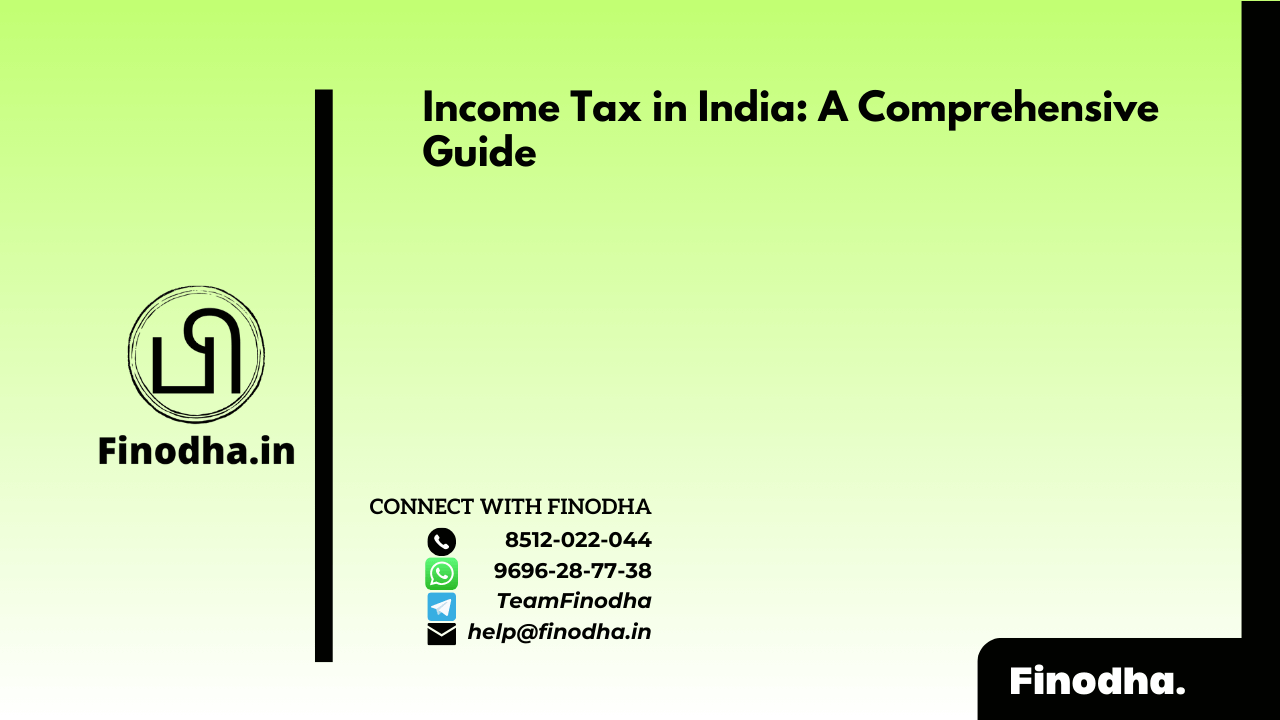Important Keyword: Business and Profession Income, Income Tax Rates, STT, Trading Income.
Table of Contents
STT: Securities Transaction Tax
Before the introduction of the Securities Transaction Tax (STT), tax evasion was a concern as trading transactions often went unreported. In response, the Finance Act of 2004 introduced STT. The primary objective of this tax was to curb tax evasion related to capital gains derived from stock sales. Additionally, STT aimed to promote fairness and transparency in the collection of taxes from financial market transactions. By levying STT, authorities sought to ensure that all transactions in the securities market were accounted for, thus minimizing opportunities for tax evasion and enhancing overall tax compliance.
What is STT?
The Securities Transaction Tax (STT) is levied on transactions involving the buying and selling of securities on recognized stock exchanges in India. These securities include equity, derivatives, and units of equity mutual funds. Additionally, the tax extends to unlisted shares initially offered to the public in an IPO and later listed on recognized stock exchanges. Government authorities determine the tax rates, and both buyers and sellers are responsible for paying it.
Entities tasked with collecting STT include recognized stock exchanges, prescribed persons in mutual funds, and lead merchant bankers involved in IPOs. They are obligated to remit the collected STT to the central government by the 7th of the subsequent month. Failure to collect or remit the tax on time leads to penalties and interest.
It’s crucial to note that STT applies exclusively to transactions conducted on recognized stock exchanges. Off-market transactions are exempt from this tax. The securities subject to STT encompass a wide range, including equity shares, derivatives, mutual fund units, and even certain types of unlisted shares. Compliance with STT regulations is essential to ensure smooth and lawful trading activities in the Indian stock market.
Securities on which STT is levied
The Securities Transaction Tax (STT) is applicable to securities traded on recognized stock exchanges in India. Therefore, it does not apply to transactions conducted off-market. The following is a comprehensive list of securities subject to STT:
- Equity Shares
- Bonds
- Debentures
- Stocks
- Units of Equity Mutual Funds
- Exchange Traded Funds (ETFs)
- Derivatives, including Futures & Options
- Rights or Interest in Securities
- Securitized Debt Instruments
- Government securities of Equity nature
These securities represent various financial instruments commonly traded on stock exchanges, and STT is levied on transactions involving them to ensure fair taxation and regulation of the securities market in India.
Securities Transaction Tax Rates
| Transaction | STT rate | Payer | Value on which STT to be paid |
| Purchase of equity share (delivery-based) or Unit of business trust | 0.1% | Buyer | Purchase Value |
| Sale of equity share (delivery-based) or Unit of business trust | 0.1% | Seller | Sales Value |
| Purchase of equity mutual fund (delivery-based) | NIL | Buyer | Not Applicable |
| Sale of equity mutual fund (delivery-based) | 0.001% | Seller | Sales Value |
| Sale of equity shares (intraday) or Equity mutual fund (without actual delivery) | 0.025% | Seller | Sales Value |
| Sale of Exchange Traded Funds (ETFs) | 0.001% | Seller | Sales Value |
| Sale of Futures | 0.0125% | Seller | Sales Value |
| Sale of Options (option not exercised) | 0.0625% | Seller | Option Premium |
| Sale of Options (option is exercised) | 0.125% | Purchaser | Settlement Price |
| Sale of unlisted equity shares or units of business trust under an IPO which are later listed on a recognized stock exchange | 0.2% | Seller | Sales Value |
Income Tax on Securities with STT paid
he income tax rates for securities on which Securities Transaction Tax (STT) is paid are generally lower compared to other assets. Below are the income tax rates applicable to such securities:
- Equity Shares and Equity Mutual Funds:
- Long-Term Capital Gains (LTCG) exceeding INR 1 lakh are taxed at 10%.
- Short-Term Capital Gains (STCG) are taxed at 15% if the securities are held for less than 12 months.
- Derivatives (Futures & Options):
- Short-Term Capital Gains are taxed at the applicable slab rates if the securities are held for less than 12 months.
- Long-Term Capital Gains exceeding INR 1 lakh are taxed at 10%.
- Exchange Traded Funds (ETFs):
- Taxed similar to equity shares, with LTCG exceeding INR 1 lakh taxed at 10%, and STCG taxed at 15% if held for less than 12 months.
- Government Securities of Equity Nature and Rights or Interest in Securities:
- Taxed based on the holding period and the gains realized, with LTCG exceeding INR 1 lakh taxed at 10% and STCG taxed at the applicable slab rates.
It’s essential to consult with a tax advisor or refer to the latest tax regulations to ensure compliance with applicable tax rates and rules.
Tax on Capital Gains
| Type of Security | Period of Holding | STCG | LTCG |
| Equity shares Equity Mutual Funds Exchange Trade Funds ESOPs / RSUs | 12 Months | 15% | Upto 1 lakh – Nil Above 1 lakh – 10% |
| Foreign Shares | 24 Months | Slab Rates | 10% without indexation |
The introduction of the grandfathering rule has brought about significant changes in calculating Long-Term Capital Gains (LTCG) on equity shares and Equity Mutual Funds. Under this rule, the cost of acquisition for determining LTCG is calculated by taking into account the highest price of the share or unit as on 31st January 2018 or the actual purchase price, whichever is higher.
Tax on Business Income
Regarding tax implications on business income from trading in securities, the Securities Transaction Tax (STT) paid on trading transactions can be considered a valid business expense. This tax, being a direct expense related to trading income, can be reported as an expense in the Profit and Loss Account while filing ITR-3.
For example:
Case 1: If a trader buys 100 shares of HDFC at INR 1000 each and sells them on the same day at INR 1006, it’s treated as an intraday transaction. With an applicable STT rate of 0.025% for intraday transactions, the STT will be calculated as INR 1006 * 100 * 0.025% = INR 25.15.
Case 2: If a trader sells 1 lot of NIFTY at INR 9000, the total value of the transaction would be INR 6,75,000 (INR 9000 * 75). Considering the STT rate applicable for futures transactions at 0.0125%, the STT would be INR 6,75,000 * 0.0125% = INR 84.375.
These examples illustrate how STT is calculated and treated as a business expense in trading scenarios, aiding traders in their tax filings.
Read More: DDT: Dividend Distribution Tax
Web Stories: DDT: Dividend Distribution Tax
Official Income Tax Return filing website: https://incometaxindia.gov.in/




